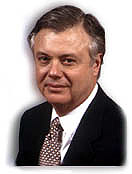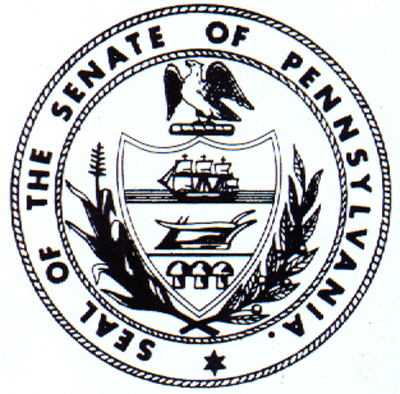|
|
||||||
HOUSE CREATES MAJOR NEW LOOPHOLES IN GAMBLING LAW HARRISBURG, November 16, 2004 – While claiming to reduce the restriction on public officials’ ownership of slot parlors from one percent to zero, the House of Representatives has opened the door to unlimited ownership of gambling businesses by the family members of public officials. On Monday, the House passed a bill (SB 1209) making changes to Pennsylvania’s four-month-old gambling law. The law (Act 71,) which restricted all public officials to owning no more than one percent of a slot operation and Gaming Board officials to no ownership whatsoever, extended those restrictions to their immediate family members. The law paralleled the definition of "immediate family" that has been used in the state Ethics Act – spouses, children of any age, siblings and parents. The bill passed by the House on Monday, however, dramatically alters that definition to include only spouses and minor children. It would thus allow adult children, siblings and parents to own any percentage of a slot parlor, up to and including 100 percent. "The House changes would create a significant loophole that did not exist in Act 71," said State Senator Vince Fumo. "It would allow close relatives of public officials and Board members to hold substantial interest in a slot operation. We need to stop this hypocrisy. Either we are eliminating the ownership provision or not." Another House change would also weaken the bill by exempting some types of machines from the requirement for state licensing and regulation – namely progressive slot machine systems, slot monitoring systems, casino management systems and player tracking systems. The effect would be to remove the Act 71 requirement that data systems which involve the transfer of money or financial information be produced by a regulated licensee. "We know of no other state jurisdiction that does not require the producers of such systems to be licensed and regulated," Fumo said. Two more House changes might erode the ability of the state to provide tax relief under the gambling law. One provision now in the bill requires the transfer of money from the pool intended for tax relief to the State Lottery Fund if the Lottery experiences a shortfall from the prior year. The second changes the transfer of gaming revenue to the Property Tax Relief Fund from a monthly to a yearly basis. This will significantly curtail the state’s flexibility to time the release of tax relief funds. The House did improve the legislation, which had originated in the Senate, by re-inserting a requirement that slot machine manufacturers sell and service their devices through Pennsylvania-based companies. That provision, which had been included in the law when it was enacted in July, is designed to create business opportunities for Pennsylvania companies and jobs for Pennsylvania residents. "All slot machine manufacturers are located out of state. This provision of the law will mean that Pennsylvania companies will participate in the new slots industry that will develop here. I’m pleased that the House put it back, because it is an important job-creation component of the bill," said Fumo, one of the main authors of the original gambling law. The House also retained a provision contained in Act 71 that allows the Gaming Control Board to choose slot parlor locations without being subject to local zoning objections. The Board needs the flexibility to locate the facilities where they will produce maximum revenue. Local zoning objections could also delay facilities from getting up and running, and thus postpone tax relief. # SB 1209, PN 1947 cites: The loophole for family members of public officials and Gaming Board members to own unlimited interest in a slots operation is found on Page 33, lines 8-10; and Page 75, lines 27-28. The regulatory loophole exempting some machine manufacturers from state licensing is found on Page 45, lines 16-20. The Lottery transfer provision is found on Page 65, lines 11-26. The yearly instead of monthly fund transfer provision is found on Page 65, lines 29-20. |


